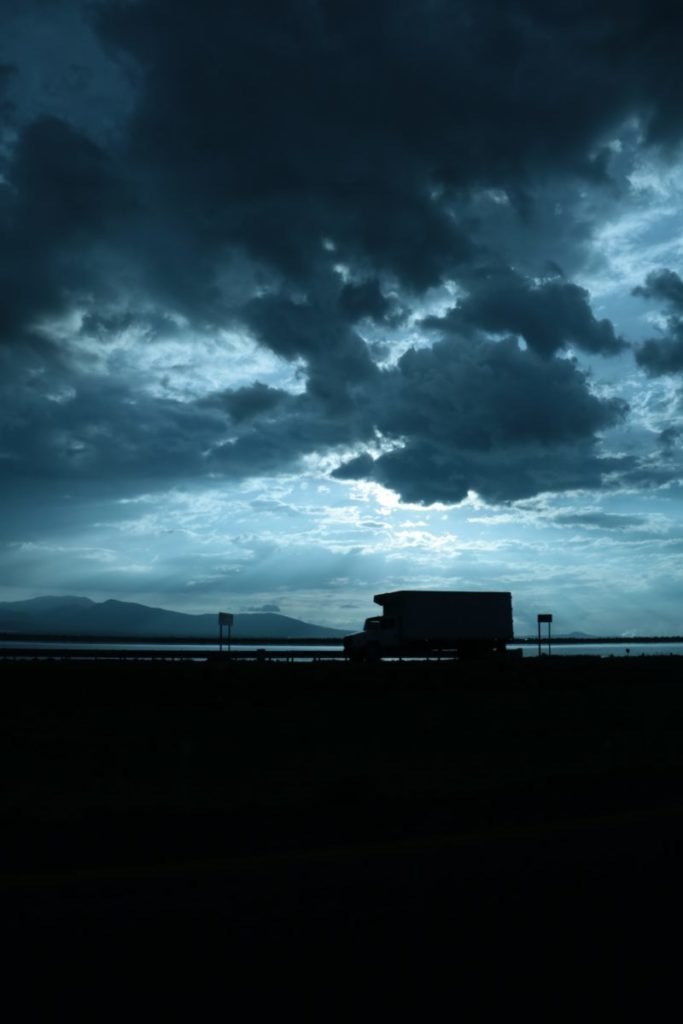
I found my calling on a bleak Sunday afternoon in the fall of 1958, standing at the edge of a fetid swamp, questioning why bad things happened to little children. It was the day four-year-old Billy Flynn disappeared. I was nine at the time, living in Pawtucket, Rhode Island with my mother and grandmother, in the kind of friendly neighborhood that was pretty common back then. That afternoon had started innocently enough, in the Flynns’ backyard, right after Halloween. Decked out in Stetson hats and feathers, a bunch of us boys were playing Cowboys and Indians. I’d just been killed by an imaginary bullet and was lying on the grass, clutching my beaded headdress, when Mrs. Flynn came out of the house calling for Billy. The whooping and hollering was so loud I almost didn’t hear her.
“He’s not here, Ma,” Kevin said as the other kids quieted down. Kevin and I were blood brothers, sworn to loyalty with his father’s pen knife.
“Where is he then?” Mrs. Flynn asked.
“I don’t know, somewhere,” Kevin said.
From ground level, through my dead-man stare, all I saw of Mrs. Flynn were her legs. She wasn’t wearing shoes or stockings. Her calves bulged with purple veins. Her ankles could have supported a buffalo. Normally, I didn’t pay much attention to Mrs. Flynn. She didn’t pay much attention to me, either. Unlike the other mothers, she never invited me in for hot chocolate or lemonade. I figured taking care of five children kept her busy, so I didn’t take it personally.
My own mother enjoyed my company, and I enjoyed hers—my friends too. She treated us almost like equals. At that time, my mother was studying psychology to prepare for a professional career. I look back in amusement when I think about our dinner conversations. Every night, she shared what she’d learned that day. Once, I remember, it was Freud’s theory of Eros and Thanatos. My grandmother, a prim and proper woman, told her the topic was unsuitable for children. I suppose it was, but who else could my mother talk to after my father left? Anyway, what did it matter? I couldn’t understand a word she said.
Mrs. Flynn’s plump feet padded past me, stopping at the edge of the stone wall. “Billy Flynn!” she shouted into the street. I knew that shout. Billy liked to play hide-and-seek without telling anyone he was doing it. “Come home this minute!”
Exactly what I wanted to say to my father. It had been three years since he regaled us at dinner with recaps of Providence Friars games or with stories about his own athletic feats. My mother had typically objected to his fixation on a subject that bored her, but I used to love how his face lit up whenever he talked sports. Though now I know better, in those years I believed if I’d shown promise as an athlete rather than a science geek, he might have stayed. Instead, much to my misery, he sat at another kitchen table, providing play-by-play for his second wife and her twin boys, Mark and Marty, the Little League All Stars.
“I mean it, Billy, now!” Mrs. Flynn screamed. My eyes popped open. Mrs. Flynn slapped at her apron as if the grease stains had done something wrong. Then she went inside.
“Let’s play!” Kevin yelled. He fired his Wyatt Earp. Pow! Pow! I loved the burnt-wood smell of spent caps. Kevin and I used to smash whole cap rolls with his father’s sledgehammer to inhale the intoxicating perfume.
“Stop, boys!” Mr. Flynn’s voice boomed across the yard.
I sat up. Mr. Flynn never came outside on Sunday, not even to go to church. After welding six days a week at Washburn Wire, he slept late in the morning and watched football all afternoon. Mrs. Flynn took the boys to Saint Mary’s by herself.
“Jimmy! Kevin! Brian! Danny!”
You’d have thought Mr. Flynn had a lasso, the way his sons’ necks jerked as he called each of their names. They raced across the yard, up the steps, past their father, and into the house.
With no Flynns to play with, the rest of us headed out. I’d just crossed the street to my house when I heard Mr. Flynn call from his front steps, “Boys! Come back!”
I rushed back. The other kids, too, still in their holsters and quivers. From the sidewalk at the stone wall, we looked up at the Flynn boys and their parents. No one smiled at us, not even Kevin.
“Billy’s gone missing,” Mr. Flynn said, “his trick-or-treat bag, too, so he’s probably hiding somewhere with his candy. Help us check the bushes, ring the neighbors’ bells.” He cleared his throat. “No point searching the swamp. Billy would never go there alone.”
Our house and the Flynns’ were the last ones on the street before a hill descended. Oak trees, maples, and fields lined both sides, and on our side, extended down to Manittoo Swamp. I agreed Billy wouldn’t go there. The swamp scared him, just as it had scared me at his age. Anyway, I wasn’t worried. I thought Billy might be in the storage shed at the back of my house. He’d hidden there a couple of times from his mother, behind the boxes my father had never picked up. If I found him, I’d be the hero. But Billy wasn’t in the shed or under any of our bushes either. I walked part way down the hill to the tree where Kevin and I had taught him to step on a low branch and reach for a higher limb. I pictured Billy sitting up there, munching on Candy Corn. But no.
Frustrated at my failure to find the little guy, I started back up the hill. Two policemen were leading a large group of people down. As I recollect, or perhaps imagined, steel guns poked out of their holsters. Wooden clubs rapped at their thighs. To my horror, I realized they were heading toward the swamp, and I joined them. For the first time, I understood: Billy might be missing for real.
Every summer, my friends and I spent hours at Manittoo Swamp, catching frogs, skipping stones, daring each other to circle the water’s edge without falling in or getting stuck in the mud. That day, in the early November chill, the swamp smelled of rotting leaves. The air felt so thick it hurt to breathe. The water had turned dark brown, making it impossible to see through to the bottom.
“We need adult volunteers to scour the swamp,” one of the policemen said.
Mr. Flynn moaned. I saw Roger Bouchard’s father put an arm around his shoulders.
My parents would have volunteered, I’m sure of it, if they’d been there. But my mother was studying at the campus library and my father was in Chicago, where he’d been living for two years. In my mind’s eye, he was in his backyard playing catch with the twins instead of searching for Billy Flynn. I couldn’t help thinking, What if I’d been the one who was lost?
As the sun dipped in the sky, the policemen lined up twenty men or so. “Do a walkthrough, side by side,” one of them said. “If you feel anything solid at your feet, stop.”
Linking elbows, the men began trudging in a straight line across the swamp. Within three feet, the water came up to their knees. Mr. Lavoie lost his balance, breaking the link. Terrified, I imagined he’d tripped over Billy, face down in the muck, his red curls tangled in the weeds. That horrific image haunts me to this day. “It’s nothing,” Mr. Lavoie said. “Twisted my foot in a hole, is all, I’m fine.” The men moved forward, arm in arm, until Mr. Bergeron bumped into something and let out an agonizing groan. “Just a rock,” he said, after reaching down. “Big one.” Seconds later, Mr. Cassidy yelled “Stop!” The water had reached their chests. Mr. Cassidy disappeared, then resurfaced, slimy-faced, holding up a blue sneaker. It was an adult’s size, not a child’s. But I still felt uneasy. Where was the other sneaker? What had happened to the man who’d lost it?
Narrow bands of pink stretched across the horizon. My grandmother set great store by sunsets. “God is painting the sky,” she liked to say. When I was around five, I asked her where the paint came from. “God,” she said. “God created everything.” I accepted her answer as fact. Now that Billy was missing, I wondered whether God really existed. How could God lose a little kid? And if there was no God, what made the sky turn pink? I built my science career searching for answers to the questions generated that day.
As dusky orange darkened the clouds, the volunteers finally arrived at the far edge. They let go of each other, turned, and slogged back at a different angle. No tripping. No loss of balance. No Billy. I felt more worried than relieved. If Billy wasn’t in the bushes or the trees or the swamp, where was he?
**************************
The street lamps turned on, spotlighting the gold badge on the police chief’s black hat. Gripping a bullhorn, the chief stood on the front lawn with the Flynns to address the huge crowd. Mrs. Flynn crossed her arms over her pregnant belly, as if to protect the baby. The temperature had plummeted, but her feet were still bare, which surprised me. It took becoming a parent myself to understand she’d been too distraught to notice. The crowd grew even larger. It’s shameful to admit, but I felt jealous of Billy when I saw how many people cared for him. I wanted to be cared for like that.
“I know every one of you wants to find Billy,” the police chief bellowed through his horn, “but it’s getting dark. Time for the kids to go inside.”
Upset at being dismissed, but having no choice, I went home. My grandmother was asleep on the living room couch. How she managed to nap through all that commotion—sirens and all—is something of a mystery to me even now.
As I stood at an open window listening to the chief’s instructions, a childish scheme took root in my head. I’d sneak out to look for Billy, wearing black, invisible. Moving unnoticed from street to street, I’d find him at last, gather him in my arms, and whisper, “It’s okay, kiddo, everything’s fine now.” Then I’d deliver him to his tearful mother and grateful father, who would lovingly pat my shoulder and say, “Nathan, my boy, I can’t thank you enough.”
“Fan out in other neighborhoods,” I heard the chief say, “but no unnecessary risks. We don’t need to turn this into anything worse.”
Suddenly several people were pointing excitedly at the house. “Look! Look!” “There he is!” “Thank God!” “What a blessing!” “A miracle!”
Dressed in a blue Lone Ranger costume, Billy stood at the top of the front steps facing the crowd. He peeled off his black mask and rubbed his eyes.
I ran out, cheering with everyone else. Billy looked fine, if confused. I hadn’t become a hero, but then nobody had. As I’d expected, Mrs. Flynn cried. Mr. Flynn’s reaction shocked me. A large man with calloused hands, he was the kind of father who kept his feelings to himself. And yet, holding Billy close to his chest, he said again and again through his sobs, “I love you, son.”
Kevin appeared. “Let’s go shoot fireworks,” he said.
**************************
The next day, Kevin charged everyone five cents for a tour of his basement to see the nook behind the boiler where Billy had stored his Halloween candy. Scrunched up in that dark space, Billy had fallen asleep. Though his parents had searched the entire house, including the basement, they’d missed that spot.
Even though Billy hadn’t gone near Manittoo Swamp, and nothing bad had ever happened to the older kids who regularly did, the neighbors decided it posed a threat. My mother disagreed. “We should be teaching children to manage danger, not limiting their opportunities for growth and development,” she told me and anyone else who would listen. Today I can see her point. At the time, though I wanted to save Manittoo, I wished she’d kept her thoughts to herself. Without a father, I was already different enough. The last thing I needed was for my mother to be seen as a know-it-all. In the end, the other parents formed a committee without her and convinced City Hall to do away with the swamp.
That April, when I turned ten, a procession of dump trucks hauled mounds of sand down the street. The drivers backed up, raised the bodies of their trucks, and deposited their loads at the swamp’s edge. Spreading the sand, a bulldozer created a giant sandbox. Not that we could play in it. A construction crew built a chain-link fence to keep us out. They said it was for our own good, but I didn’t believe them. My parents had said something like that about their divorce, and I rarely saw my father after that.
Narragansett Indians had named the swamp in honor of the spirits who provided rich natural resources. Now builders subdivided the land into small lots. Throughout the summer and fall, workmen poured concrete slabs and erected tract housing. The frogs were dead and gone.
**************************
Forty years later, after my mother and father died, I visited the old neighborhood with my wife, Miriam, our teenage daughter, Sarah, and our twelve-year-old son, Seth. We’d flown from the Midwest to see the leaves change in New England.
“Your house is really ugly,” Sarah said.
I had to agree. It was now painted a ghastly purple. I pointed across the street to the Flynns’ stone wall, which had fewer cracks than I’d expected. “That’s where we played Cowboys and Indians.”
“Politically incorrect,” Sarah said. She yanked her red Nokia out of her little backpack. “Can we go back to the hotel now?”
“Let me show you where else we played,” I said, not yet ready to abandon my past.
As we descended the hill, disappointment overwhelmed me. Ranch houses had overtaken the open fields. Only a few trees remained, none good for climbing. An assisted-living facility had replaced the tract houses where the swamp used to be.
When we reached the bottom, I told my family the story of Billy’s disappearance. An edited version, I should say, more light-hearted, nostalgic. I described how Mr. Flynn kept saying, “I love you, son,” but not how empty I felt watching the embrace or how sad I still feel whenever I recall my nine-year-old self. When I finished, Miriam gently squeezed my hand, as if she’d understood everything I hadn’t said. Sarah, who’d been messaging the whole time, couldn’t have heard much, but Seth looked up from his Air Jordans to say, “Awesome story, Dad.” With his dark shaggy hair and freckles, Seth took after me at the same age, except that he was one of the highest-scoring point guards in Evanston Township. I envied him for it, to be honest.
Taking one last look at my childhood home, I wondered what my life would have been like if my father hadn’t left. But what did it matter? At eighteen, to be near him, I enrolled at Northwestern, where I still teach. Along with my stepbrothers, whom I’d come to tolerate, my father and I cheered the Wildcats, gloried in the Bears’ Super Bowl win, and commiserated over the Cubs’ failure to reach the World Series. In his turn, my father, who sold insurance for Allstate, took pride in my scholarly work. He enjoyed hearing about galactic nebulae, gamma ray bursts, and supernova explosions. He even read the prologue to my first book. It was enough. More than enough.


Share this post with your friends.

